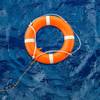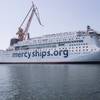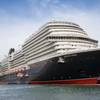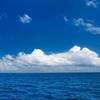After a decade that saw the size of Alaska cruise ship crowds triple and pollution from the massive vessels foul area waterways, state officials are moving to blunt the negative impact of the booming industry. Cruise ships that ply the Inside Passage and other Alaska waters are not subject to state oversight, even though they carry hundreds of thousands of gallons of fuel and more people than the populations of some of the port cities they visit.
Alaska Gov. Tony Knowles has introduced a bill to change that. It would require those ships, along with large cargo ships, fishing vessels and the state-owned Alaska Railroad, to meet the same kind of spill prevention and response standards as state law requires of oil tankers.
Under the measure, cruise companies would have to demonstrate their ability to respond to spills within 48 hours and the ability to bear the cost of cleanup.
Another bill would require cruise ship companies to publicly disclose the contents and quantities of their waste and their waste-handling practices.
"It's an industry that really hasn't been regulated, and it's time that we start," said Democratic state Rep. Beth Kerttula, sponsor of the disclosure bill whose home of Juneau is a major cruise ship destination.
The state's top environmental official agreed, saying Alaska has lagged in its regulation of cruise and cargo ships.
Ships Cruise Through Legal Loophole
After the 1989 Exxon Valdez oil spill, Alaska enacted tough laws for prevention and cleanup of oil spills from tankers but neglected to extend the laws to other large ships, said Michele Brown, commissioner of the state Department of Environmental Conservation (DEC).
"Everybody's been busy focusing on tankers, and it's only in recent years that we've been pointing out that there's this hole," Brown added.
Figures show area waterways have paid the price.
Since 1995, the regulated vessels and facilities in Alaska caused 93 oil spills totaling 5,286 gallons, according to state records. During the same period, unregulated vessels and facilities caused 945 spills totaling 258,000 gallons.
"We've got the best laws for the (vessels) we cover and no laws for the vessels we don't cover. So it was kind of an all-or-nothing situation," Brown said.
All the other U.S. states along the West Coast, as well as British Columbia, currently have laws mandating spill prevention and cleanup, she said.
The head of an industry group representing major cruise companies doing business in Alaska said he is unsure how members feel about the Knowles administration's bill.
"We have not had a chance to study that in detail," said John Hansen, president of the Vancouver-based North West CruiseShip Association.
But Kerttula's bill is premature, he said, because cruise companies have already embarked on a program with DEC to study waste practices and impacts, and to start voluntary reporting. "That's the process we'd like to see played out," he said.
Residents Complain Of Noise, Crowds
The proposals to regulate the industry come in the wake of growing disenchantment in some areas of the state with the booming cruise business.
Some Alaska residents complain about summer cruise crowds and frequent buzzing from the growing fleet of helicopters and small planes that carry cruise passengers on sightseeing trips.
They also complain about cruise ship pollution. Last year, Royal Caribbean Cruises pleaded guilty to several criminal charges of illegal discharges in Alaska waters, and Holland America Line's parent, Carnival Corp. pleaded guilty in 1998 to similar charges.
Voters in Juneau, where cruise ships disgorged about 600,000 people last year - compared with 250,000 in 1990 - overwhelmingly approved a $5-per-passenger fee in October.
Also in October, voters in Haines, a city of about 1,400 located 80 miles (128 km) north of Juneau, approved a new tax on local tours taken by cruise passengers.
Hansen said he is unsure whether the cruise industry is being unfairly targeted by Alaskans.
But one company has already taken some retaliatory measures against Juneau for the head tax approved in the municipal election. Holland America announced it would withdraw much of its support to Juneau charities.
"If the community doesn't really want us there, if that's really truly what they're telling us, then we need to reassess what we're doing," said Al Parrish, a Holland America vice president. - (Reuters)
Subscribe for
Maritime Reporter E-News
Maritime Reporter E-News is the maritime industry's largest circulation and most authoritative ENews Service, delivered to your Email five times per week










